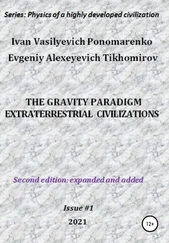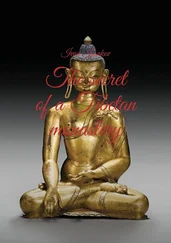The young Hellene stared after his friend and tears made a haze before his eyes. The Etruscan heaved a heavy sigh behind Pandion’s back.
“The time will come when you and I must part,” he said softly and sorrowfully.
“Our homes are not very far apart and ships sail between them very often,” said Pandion, turning round to him. “But Kidogo… he will remain here on the outer edge of Oicumene.”
The Etruscan did not say another word.
Now that Pandion was sure of the future he gave himself up wholeheartedly to his art. He was in a hurry; the magnificence of friendship, cemented in the struggle for freedom, was a tremendous inspiration that compelled him to hurry. He could already see the details of his cameo.
The three men must stand embracing each other against the background of the sea towards which they had struggled, the sea that promised them return to their homes.
On the larger flat side of the stone Pandion had decided to depict the three friends, Kidogo, Cavius and himself, in the sparkling, transparent light of the expanses of the sea which the bluish-green stone represented as nothing else could.
The young sculptor made a few sketches on thin pieces of ivory such as the women of the tribe used to grind and mix some sort of ointment. The discovery that he had made necessitated his having a living figure constantly before his eyes. This, however, presented no difficulty since the Etruscan was with him the whole time, and Kidogo, feeling that the ships would soon be coming, left his own work to spend as much time as possible with his friends.
Pandion often asked the Etruscan and the Negro to stand in front of him with their arms round each other’s shoulders, which they, laughing at him, always did.
The friends often sat talking together for a long time, confiding to each other their most secret thoughts, their worries and their plans, and deep down in each of them the realization that they must part dug into his heart like a thorn.
While Pandion talked he did not waste time but worked persistently on his hard stone. At times the sculptor would sit in silence; his glance would become sharp and penetrating — he was trying to catch some detail in the features of his friends that was important to him.
The three embracing figures began to stand out in ever greater relief, all the time becoming more lifelike. The central figure was that of the huge Negro, Kidogo; to the right, turned slightly towards the blank space on the stone stood Pandion, and on the left Cavius, both with spears in their hands. Cavius and Kidogo thought that their images were very lifelike, but insisted that Pandion had drawn his own portrait poorly. The sculptor laughed and said that that was not important.
The figures of the friends, despite their diminutive size, were extremely lifelike and there was real virtuosity in every line of them. There was strong, impetuous movement in their bodies, but at the same time there was elegant restraint in them. In Kidogo’s arms, thrown around the shoulders of the Etruscan and the Hellene, Pandion had managed to express a movement of protection and fraternal tenderness. Cavius and Pandion stood with heads inclined warily, almost menacingly, with the tense vigilance of mighty warriors ready at any moment to repel the attack of any foe. The group as a whole gave this impression of might and confidence, and Pandion made every effort to express in his carving all the best that was in those who had become his dearest friends on the long road from slavery to his native land. The sculptor realized that at last he had succeeded in creating a work of art. Kidogo and Cavius stopped making fun of Pandion. For hours they sat with bated breath watching the movements of the magic chisel, their new attitude towards Pandion being the expression of a vague sort of adoration. Their young friend, bold, merry and even childish, — at times amusing in his admiration of women, had proved himself a great artist! This was a fact that both pleased and astonished Kidogo and Cavius.
Pandion put all his love for his friends into that burst of creative enthusiasm. His original idea — that of carving Thessa on the stone — did not have any further appeal. Thessa, Iruma and Nyora, women from different peoples, were sisters in their beauty; in all of them he felt the same power of attraction… Whether they were sisters in all other respects Pandion did not know. Could Thessa form as firm a friendship for Nyora as he had for Kidogo? In Pandion’s friendship with Cavius and Kidogo, in their comradeship with the other fugitive slaves — but few of whom were left together now — there was a fraternity of identical thoughts and efforts, cemented more firmly than stone by loyalty and courage. They were real brothers although one of them had been born here under the strange trees of Africa of a mother as black as himself; the second had lain in his cradle in a hut that trembled in the bitter storms of the northern lands at a time when the third was already a warrior fighting against the fierce horsemen of the distant steppes on the shores of a dark sea… Their hearts, tested hundreds of times in adversity, were joined by strong sinews and… of how little importance now were differences of country, faces, bodies and religion!
The days passed quickly. Pandion suddenly realized that three months and a half had passed, and that the time appointed for the arrival of the Sons of the Wind had also passed. Pandion experienced mixed feelings of anxiety and relief — anxiety because the Sons of the Wind might never come at all, and relief because the inevitable parting with Kidogo was being postponed. In his wearying anxiety Pandion often left his work — it was, incidentally, almost completed. The Hellene again began making frequent trips to the sea, always hurrying back so as not to be long away from his friends.
One day Pandion was making ready to go for his usual bathe in the sea. He got up and called his friends, but they refused; they were engaged in a heated argument on the best way to prepare leaves for ‘chewing. In the distance they suddenly heard the sounds of numerous voices, shouts and screams of ecstasy, such as Kidogo’s excitable people gave vent to on every occasion of importance. Kidogo jumped up, his face turned ash-grey, the pallor even spreading to his mighty chest. Staggering slightly, Kidogo ran to his own house, shouting over his shoulder to his astonished friends:
“That must be the Sons of the Wind!”
The blood rushed to the heads of the Etruscan and the Hellene, and they, too, set off at a run along a short path to the sea known to Pandion. On the crest of a hill Pandion and Cavius stood still.
“The Sons of the Wind!”
The dark purple shadow of the huge mountain lay on the shore and stretched far out to sea, dulling the sparkle of the waves and giving the water the gloomy tones of the forest thickets. Black ships, in shape like those of the Hellenes, with curved swanlike breasts and high prows, were already drawn up on the greying sands. There were five of them. With their unstepped masts they looked like black ducks asleep on the beach.
Bearded warriors in rough grey cloaks walked up and down in front of the ships, the bronze of their shields flashing; in their hands they carried broad battle-axes on long handles. The chiefs, the merchants and all those who were not on guard duty must have gone to Kidogo’s village. The Etruscan and the Hellene turned back.
Kidogo awaited them impatiently at their house.
“The Sons of the Wind are with the chiefs,” the Negro informed them. “I’ve asked my uncle to talk to the big chief, and he himself will talk to them about you. It will be safer that way. The Sons of the Wind will not dare to quarrel with him and will bring you safely home.” And in the Negro’s wan smile there was no joy.
Читать дальше












